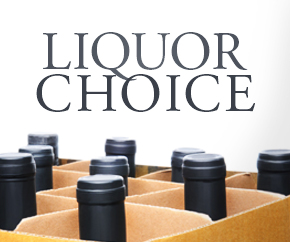Fact Sheet

PLCB Boondoggles
Government Brands Hurt Local Wineries
- The PLCB created and heavily promoted the wine brand TableLeaf. The agency spent $7-10 million of our tax dollars on copyrighting, branding, and marketing this single in-house brand. And they have at least seven other government brands featuring more than 30 different products.
- Adding insult to injury, TableLeaf is a product of California—the PLCB promotes out-of-state grapes rather than Pennsylvania’s growing wine industry.
- The PLCB unfairly competes against Pennsylvania wineries and other private businesses by using tax dollars and monopoly power to push its own in-house products. Imagine being a local winery owner, knowing your taxes are being used to fund your own competition!
Wholesale Managerial Incompetence Costs Taxpayers
- The PLCB poured $66 million in taxpayer money—nearly two-and-a-half times the estimated cost—into a “state of the art” inventory system that failed to allocate adequate product levels, causing widespread shortages at retail outlets.
- This led to massive hoarding by store managers and, later, to over-ordering. Surplus inventory was stored in non-temperature-controlled trailers that cost an additional $500,000 and subjected heat sensitive merchandise to temperatures in excess of 100 degrees.
Promotion and Regulation Create Conflicts of Interest
- The PLCB is charged with encouraging responsible alcohol use through regulation and education, but promotes the same activity by advertising and encouraging liquor sales with taxpayer money! This is a blatant conflict of interest that has relegated Pennsylvania to the worst of both worlds.
- Pennsylvania State Police do not perform sting operations in PLCB stores as they do in privately owned bars and restaurants. The state allows the PLCB to monitor its own businesses—an inspection exemption that couldn’t happen in a free market.
Tasteless Ad Campaign Demonstrates Out of Touch PLCB
- The PLCB’s infamously graphic “She couldn’t say no” sobriety ad campaign—that implied intoxicated rape victims were partly to blame for their own rape—brought national and international attention, and met with shock and ridicule as far away as the UK Daily Mail.
- The PLCB spent $45,000 on a tone-deaf billboard ad campaign to promote the “Simply Naked” wine brand.
Efforts to “Modernize” Become Costly Fiascos
- The infamous wine kiosk program, begun in 2009, offered the opportunity to buy wine out of vending machines placed in grocery stores. Purchasers were required to blow into a public breathalyzer and stare into a camera to verify their sobriety and identity. Not recognizing this as convenience, Pennsylvanians chose not to participate.
- After horrid sales, customer complaints and frequent breakdowns that sparked an Auditor General investigation, grocery giants Wegmans and Wal-Mart pulled the plug.
- The kiosk debacle should never have happened. The PLCB ignored advisors who warned that the kiosks were ‘deficient,” not “user-friendly” and the company that made them lacked a “coherent business plan.” Of course, the Board approved the program anyway, granting the contract to a company with no proven track record.
- That company then defaulted on a $1 million payment to the state in 2011—an issue still being litigated in 2013.
Wholesale Monopoly Means Bureaucrats Jet-set on Taxpayers’ Dime
- From 2007-2011, 14 PLCB employees visited exotic destinations such as Paris, Dubai, New Zealand, Catalonia, Barcelona, Lisbon and Argentina, often at taxpayer cost. The rest was paid by foreign governments and corporations hoping to have their products sold to a captive audience.
- The PLCB outfitted a $35,000 wine tasting room, dubbed “the wine shrine,” complete with leather chairs, sofas and big-screen TVs to “educate palates” of Pennsylvania consumers.
Cronyism Remains Rampant at PLCB
- From creating high-paid positions (CEO Joe Conti made $156,000 annually, more than a senator’s salary), to awarding an “employee charm school” contract of more than $173,000 to the husband of a high-ranking PLCB official, the PLCB embodies government cronyism.
- Why was the failed kiosk contract granted anyway? Editorial boards across the state have wondered if the $400,000 donated to former Gov. Ed Rendell’s campaign by kiosk company investors may have tipped the scales.
- Accepting gifts and favors from vendors as a PLCB official is considered unethical (if not criminal) behavior. State inspectors say CEO Joe Conti and at least two others accepted free wine (no surprise) and sporting event tickets. Thankfully, Joe Conti retired earlier this year, right?
- Not quite! Joe Conti is back on an “emergency” basis at the bargain price of $80 an hour. And he is eligible to collect pension payments at the same time!
Getting government out of the booze business would eliminate conflicts of interest, stop government from freezing out Pennsylvania wineries, reduce opportunities for cronyism, eliminate taxpayer-funded boondoggles and allow the PLCB to focus on its mission as a regulatory agency. Privatization means ending the government monopoly over both wholesale and retail operations and returning to a free market.